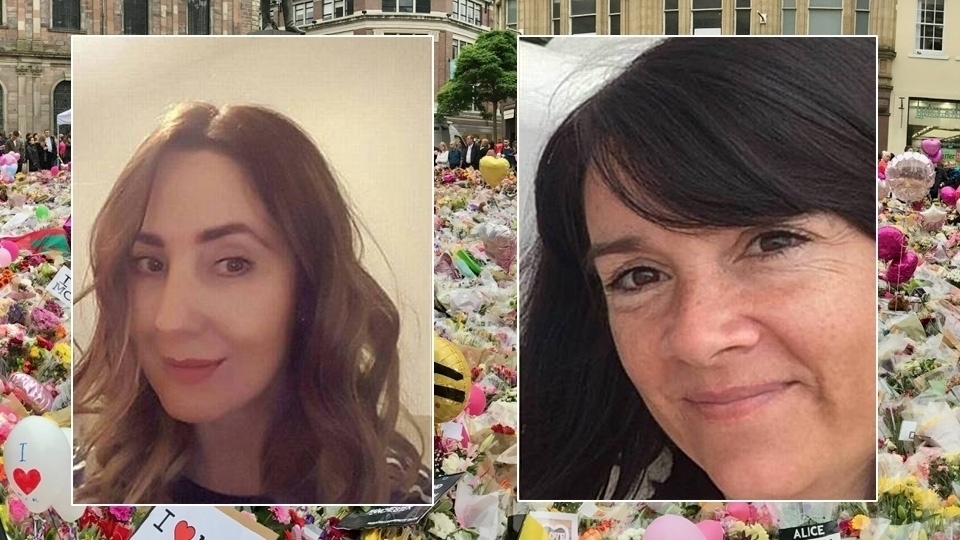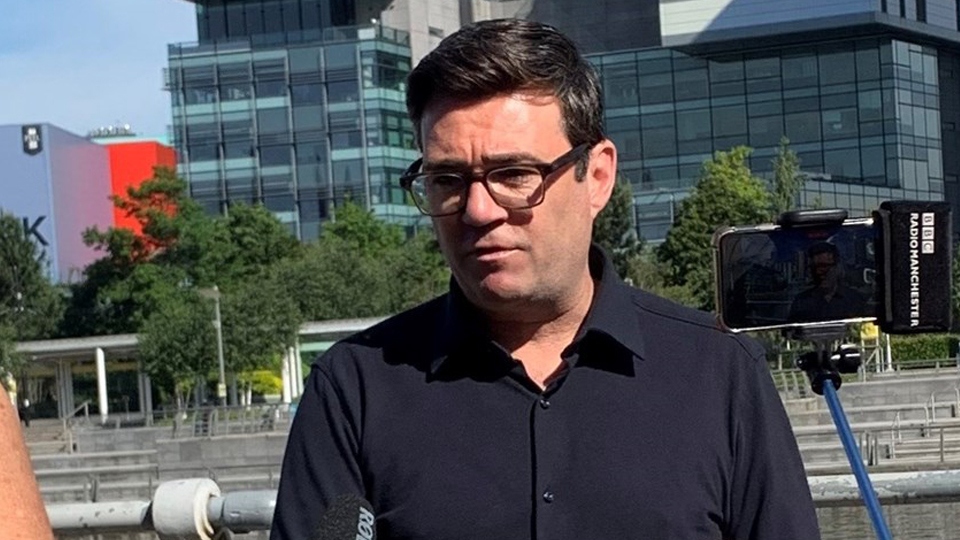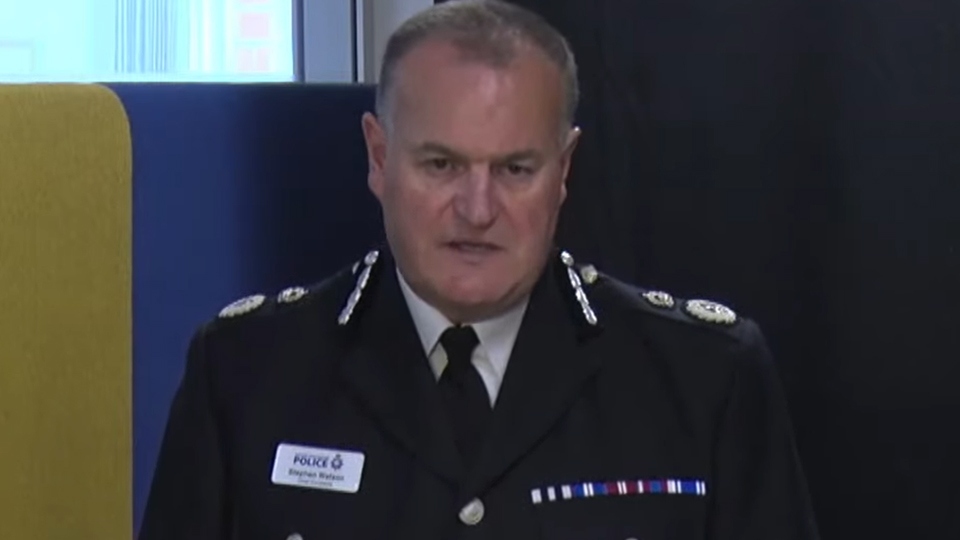Arena bombing families were 'badly let down' - GM Mayor Burnham
Date published: 04 November 2022

Royton mums Lisa Lees (left) and Alison Howe were tragically killed in the Manchester Arena attack in May, 2017
Mayor of Greater Manchester Andy Burnham says the families of those killed and injured in the May 2017 Arena bombing attack were 'badly let down' by the emergency services who were on duty on that fateful night.
Twenty-two people were killed on May 22, 2017, when suicide bomber Salman Abedi detonated a homemade device in the Manchester Arena foyer as crowds left an Ariana Grande concert.
Manchester Arena Inquiry chair Sir John Saunders said yesterday (Thursday) "significant aspects" of the emergency response "went wrong".as his latest report was officially released.
Royton mums Lisa Lees and Alison Howe were among those tragically killed in the attack.
Delivering the second of three reports into what happened on the night, Sir John said emergency crews involved in the response "no doubt thought they were doing their best, [but] in some cases... their best was not good enough".
He also said it was likely that "inadequacies in the emergency response" had prevented one man, John Atkinson, from surviving.
Greater Manchester Mayor Mr Burnham said: "I want to thank Sir John and his inquiry team for giving us the fullest picture of what happened at the Manchester Arena on the night of the 22nd May 2017 and into the early hours of the 23rd.
“To those injured, to everyone still struggling and, most importantly, to the families of those who died, I wish to say this very clearly: you were badly let down on that night; you were entitled to expect much better from our emergency services than the response provided; and, as you have heard from them today, everyone here is truly sorry that did not happen.
“Of course, there were many people who did act courageously and selflessly in the moment as Sir John said himself today.
"We recognise what they did.
"Police officers and paramedics did run into what they believed to be a dangerous situation as did Arena staff, Travel Safe officers and staff from Northern Rail at Victoria Station.
“In particular, the members of the public who helped others in a desperate situation deserve our huge thanks and more recognition for what they did.
“Many people in all emergency services did do their jobs properly. But they were let down by the lack of a properly organised response.
“As the inquiry report makes clear, the reason people were left in this unacceptable position was the result of poor advance planning, and a failure to follow established guidance for an incident of this nature.
"That led to a poorly co-ordinated and confused response operation on the night.
"There is no justification nor excuse for this.
“I can only speak for the services for which I am responsible – Greater Manchester Police and Greater Manchester Fire and Rescue Service – and in my view they failed so badly because they had poor leadership, a poor internal culture and an inability to collaborate properly and apply JESIP principles as the public should have been entitled to expect."

Greater Manchester Police Chief Constable Stephen Watson has 'apologised unreservedly' in his response to the latest findings.
He said: "On 22 May 2017 at the Manchester Arena, 22 people were murdered and over 1000 injured, in a planned, indiscriminate and cowardly act of abject barbarity,
"Our thoughts are with the bereaved families, and the survivors, who have been central to everything we have done since the attack took place.
"This inquiry set out to leave no stone unturned in its effort to provide answers about what happened on the night of the attack.
"The comprehensive report that we received this morning records the very detailed summation of Sir John Saunders’ findings and is the embodiment of the care taken by him to fulfil its purpose.
"We recognise that many aspects of the latest published volume will make for difficult and distressing reading for those most affected.
"On behalf of Greater Manchester Police, I thank the inquiry team for the opportunities that we have been given to participate fully and fairly in the inquiry process and we welcome today’s report.
"I fully accept the findings of the Chair, Sir John Saunders.
"Beyond the selflessness and professionalism of so many of our frontline staff however, it is also clear that our coordination of the response to this atrocity was inadequate.
"We had failed to plan effectively and the execution of that which had been planned, was simply not good enough. Our actions were substantially inadequate and fell short of what the public had every right to expect.
"For this I apologise unreservedly.
"Our failure to effect proper command and control of the incident, from the outset, undermined an effective multi-agency response to a dreadful set of circumstances.
"We did not act upon learning from previous exercises which could have reduced the burden or impact felt on the Force Duty Officer.

"Poor communications, poor planning, inadequate training and shortcomings in strategic leadership all played a part in our failure.
"All of these failings could, and should, have been identified and mitigated through learning from robustly designed training exercises under the auspices of our Local Resilience Forum.
"Alas these were opportunities that were not sufficiently taken."
Greater Manchester's Chief Fire Officer, Dave Russel, has also acknowledged his services' response on that awful night were 'wholly inadequate and totally ineffective'.
He said: "The Manchester Arena Inquiry volume two report has made for very difficult reading for me, as Chief Fire Officer of Greater Manchester Fire and Rescue Service, and my colleagues.
“I want to start by wholeheartedly apologising to the families of the 22 innocent people who lost their lives on that tragic night of 22 May 2017, and to the survivors whose lives are changed forever.
“Our response that night was wholly inadequate and totally ineffective, and that will forever be a matter of deep regret for our Service.
"We let the families and the public down in their time of need and for that I am truly sorry.
“I know that no apology will take away the pain and suffering of the families who lost loved ones and of the survivors.
"But I want them to know that I fully accept the Inquiry’s criticisms of our Service and I accept the recommendations in full.
“I also want to thank Sir John Saunders for his work throughout the inquiry and in producing this report.
“The inquiry process has been one of the most challenging times in our Service’s history and today is a very difficult day for many, especially those who so desperately wanted to help that night.
“Every firefighter who joins Greater Manchester Fire and Rescue Service wants to do their best.
"The best job they can – to help, to support, to assist the public and to save lives.
"Those that were eventually deployed to the incident that night did the best they could – albeit it was far too late."
The Arena inquiry, which started in September 2020, will deliver a third and final report that will focus on the radicalisation of Abedi, what the intelligence services and counter-terrorism police knew about him and his family, and if they could have prevented the attack.
Abedi's brother Hashem was jailed for at least 55 years a month before the inquiry began for his part in the bombing.
Do you have a story for us? Want to tell us about something going on in and around Oldham? Let us know by emailing news@oldham-chronicle.co.uk , calling our Oldham-based newsroom on 0161 633 2121 , tweeting us @oldhamchronicle or messaging us through our Facebook page. All contact will be treated in confidence.




